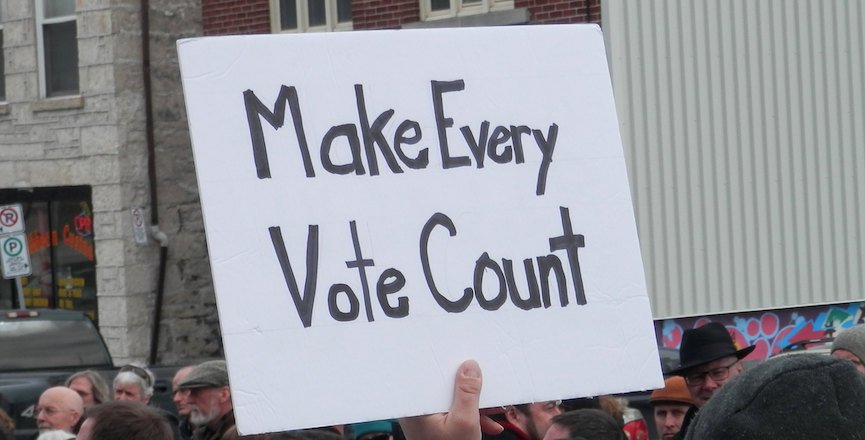The pundits are offering views on what Canada’s 2021 federal election meant. Did voters decide now is not the time for change? Did they think the previous Liberal government did a reasonable job getting us through the pandemic? Do voters prefer minority to majority governments?
A more accurate view might be that the election meant almost nothing. Preliminary results for 2021 indicate that voter turnout fell to around 59 per cent, perhaps even to a historic low.
According to Elections Canada, prior to 2000, voter turnout in federal elections ranged from 63 per cent (in 1896) to 79 per cent (in 1958, 1962 and 1963). In the 2000, 2004 and 2011 elections, voter turnout declined to 61 per cent, with an all-time low of 59 per cent in 2008.
More eligible voters returned to the polls in 2015 (68 per cent) and 2019 (67 per cent), but this year’s low turnout is a worrisome sign that our winner-take-all, first-past-the-post political process has serious problems.
Many Canadians do not think it worth the effort to vote, because their preferred candidate has no chance of winning and their views will not be represented in the House of Commons. Alternative electoral methods that better reflect the diversity of public opinion in this country are urgently needed.
Although there will be some new voices in Canada’s 44th Parliament, such as Blake Desjarlais, a Métis/Cree Two Spirit man representing Edmonton-Griesbach who is Alberta’s only Indigenous MP, it remains far too difficult to bring talented young people from diverse backgrounds into politics.
We have been more successful at getting big money out of politics than our neighbours to the south, but we have failed to establish effective electoral systems at the municipal, provincial or federal level.
For those who care about climate change and the fate of our planet, there is a strong argument that a proportional representation voting system would make a progressive environmental agenda much easier to achieve than it is at present.
It is painful to recall Justin Trudeau’s broken promise that 2015 would be Canada’s last first-past-the-post election. Just a few days ago, when asked about electoral reform, Trudeau said it was “the first time in 36 days that anyone has asked” about it and that he would be open to a “ranked ballot” system.
However, Fair Vote Canada calls Trudeau’s preferred ranked ballot a “non-proportional, winner-take-all system,” adding that “replacing one winner-take-all system with another will NOT improve Canada’s democracy.” The group provides evidence that this type of ranked ballot (also known as “alternative vote”) would “exacerbate the problems with our current winner-take-all voting system, distorting the popular vote even more than today, mainly to the benefit of the Liberal Party.”
Justin Trudeau is not the only Canadian with a view on electoral reform. In June 2021, MPs from three parties — the Liberals, NDP and Bloc Quebecois — voted in the House of Commons Procedures and House Affairs committee in favour of a motion to study a National Citizens’ Assembly on Electoral Reform. Getting the wheels in motion for a National Citizens’ Assembly should be a first order of business when Parliament resumes.
The low voter turnout for this year’s election indicates that all is not well with democracy in Canada. We need a thoughtful and detailed study of alternative electoral systems, followed by a fulsome national debate and Parliamentary action.
Ole Hendrickson is a retired forest ecologist and a founding member of the Ottawa River Institute, a non-profit charitable organization based in the Ottawa Valley.
Image credit: Ryan Hodnett/Flickr



